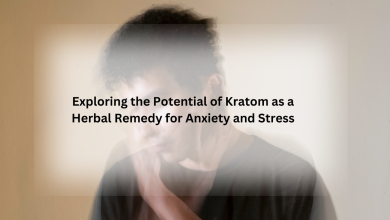10 Easy Ways to Maintain Your Mental Health and Well-being

Maintaining our mental health and well-being is essential to living a happy and healthy life. Good mental health allows us to care for ourselves, build relationships, and make positive choices that help us reach our goals. So, if you want to be able to enjoy life to the fullest, it’s important to take the time to invest in your mental health. To help you with this, here are 10 easy ways to maintain your mental health and well-being.
1) Understanding Mental Health
Mental health refers to our emotional, psychological, and social well-being. It affects how we think, feel, and act. Understanding mental health is crucial because it helps us recognize and manage our emotions, cope with stress, and navigate challenges. It’s important to remember that mental health is not just the absence of mental illness but also the presence of positive well-being. Understanding mental health, we can prioritize our well-being and seek the necessary support and resources. It’s time to break the stigma and take control of our mental health for a happier and healthier life.
2) Importance of Maintaining Mental Health
Maintaining mental health is crucial for overall well-being and quality of life. It allows us to cope with stress, navigate challenges, and experience positive emotions. When we prioritize our mental health, we are better equipped to handle the demands of daily life, build strong relationships, and pursue our goals. Investing in our mental health can foster resilience, enhance our self-esteem, and improve our happiness and fulfillment. Don’t underestimate the importance of maintaining your mental health – it’s key to living a happy and fulfilling life.
3) Practice Self-Care
Taking care of yourself should always be a priority. When it comes to maintaining your mental health, practicing self-care is key. It means dedicating time to activities and practices that promote relaxation, rejuvenation, and self-love. Whether taking a bubble bath, going for a walk in nature, or indulging in your favorite hobbies, self-care helps reduce stress and improve overall well-being. Remember, you deserve to care for yourself, so make self-care a non-negotiable part of your routine.
4) Stay Connected with Friends and Family
Maintaining strong connections with friends and family is essential for our mental well-being. These relationships give us a support system, love, and a sense of belonging. Take the time to reach out to loved ones, whether it’s through phone calls, video chats, or meeting in person. Please share your experiences, thoughts, and emotions with them, and be there for them. Building and nurturing these connections will bring you joy and happiness and contribute to your overall mental health. Remember, you’re never alone when you have the support of friends and family.
5) Take a Break from Social Media
Social media has become an integral part of our lives in today’s digital age. While it can be a great tool for staying connected and entertained, it’s important to take breaks from social media for the sake of our mental health. Constant exposure to social media can lead to feelings of comparison, low self-esteem, and even increased anxiety. Taking a break allows us to disconnect from the noise, reconnect with ourselves, and focus on real-life interactions. Use that time to engage in activities that bring you joy, connect with nature, or unwind. Trust me, your mental health will thank you.
6) Get Enough Sleep
Getting enough sleep is essential for maintaining your mental health. Lack of sleep can increase stress, mood swings, and difficulty concentrating. Aim for 7-9 hours of quality sleep each night to recharge your mind and body. Establish a relaxing bedtime routine, create a comfortable sleep environment, and limit screen time before bed. Prioritize sleep and watch how it positively impacts your overall well-being. So, prioritize those Zizz’s, and wake up refreshed and ready to tackle the day!
7) Exercise Regularly
Exercise isn’t just good for your physical health; it’s also incredibly beneficial for your mental well-being. Regular exercise releases endorphins, the “feel-good” hormones that boost your mood and reduce stress and anxiety. It helps improve your overall cognitive function and can even help prevent or manage mental health conditions like depression and anxiety. Incorporate 30 minutes of moderate-intensity exercise into your daily routine, whether going for a jog, attending a fitness class, or even dancing around your living room. Get moving and experience the positive impact it has on your mental health.
8) Set Realistic Goals and Prioritize Tasks
Setting realistic goals and prioritizing tasks is essential for maintaining your mental health. You feel a sense of purpose and direction when you have clear goals and a plan. Break your goals down into smaller, manageable tasks, and give yourself realistic deadlines. It will help you avoid feeling overwhelmed and increase your motivation. Remember to be flexible and adjust your goals as needed. By setting realistic goals and prioritizing tasks, you can stay focused, reduce stress, and achieve a sense of accomplishment, all contributing to your overall mental well-being.
9) Practice Mindfulness and Meditation
Practicing mindfulness and meditation can provide a much-needed respite for our minds in today’s fast-paced world. Taking the time to slow down, breathe, and be present at the moment can greatly benefit our mental health. Mindfulness helps us cultivate awareness, reduce stress, and enhance our well-being. Whether through guided meditation, deep breathing exercises, or simply finding moments of stillness in our day, incorporating mindfulness and meditation into our routine can profoundly impact our mental health. So, take a moment to pause, breathe, and connect with yourself. Your mind will thank you.
10) Seek Professional Help if Needed
Seeking professional help is a crucial step in maintaining your mental health. Suppose you’re experiencing persistent symptoms of mental health conditions such as anxiety, depression, or other issues that significantly impact your daily life. In that case, reaching out to a qualified mental health professional is important. They can provide the necessary support, guidance, and treatment options to help you navigate your challenges. Remember, there’s no shame in seeking help – it’s a sign of strength and taking control of your well-being. Don’t hesitate to reach out and prioritize your mental health.





